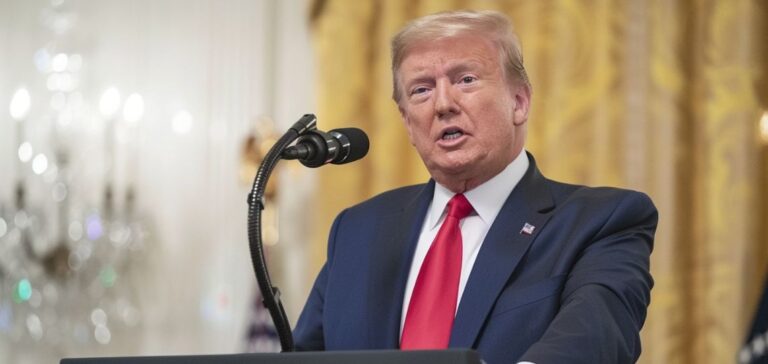The U.S. administration intensifies its trade offensive by introducing tariffs of 25% on all goods imported into the United States by countries buying Venezuelan oil, a decision explicitly aimed at weakening Caracas. This measure directly affects importers, whether they buy oil directly or through intermediaries. China, the primary buyer of Venezuelan crude, immediately denounced an “illegal interference” in its trade affairs. Beijing currently imports about 500,000 barrels of crude per day from Venezuela, placing it at the forefront of the new U.S. sanctions.
Immediate impacts on energy markets
The American decision arrives within an already sensitive context in the global oil market. India, although importing less Venezuelan crude than China, could also feel the impact of these tariff measures. Meanwhile, Washington itself imports around 240,000 barrels of crude daily from Venezuela, representing a sensitive domestic issue for the U.S. economy. Nonetheless, the White House maintains its strategy, convinced that tariffs are essential to its broader commercial and diplomatic policies, notably to rebalance its trade relationships.
The global oil market could experience significant adjustments due to these tariffs. Potential instability in supplies could intensify volatility in crude oil prices, particularly in Asia, where repercussions would be immediate. Furthermore, global supply chains could face disruptions, especially for businesses reliant on Venezuelan crude in their production processes. This instability may encourage other importing nations to seek alternative energy sources, with consequences still difficult to assess on global market balances.
Diplomatic reactions and commercial risks
Beijing’s quick and firm response illustrates the complexity of diplomatic issues arising from the U.S. decision. China called on Washington to immediately lift these sanctions, labeling them illegal and arguing they represent a clear violation of international trade principles. This diplomatic conflict could further complicate the already strained economic relations between the two powers, potentially affecting ongoing trade negotiations in sectors such as semiconductors and automobiles.
Additionally, the exceptional extension granted by the U.S. Treasury Department until May 27 allowing Chevron to continue operations in Venezuela despite the announced sanctions reveals strategic ambiguity. This highlights the internal economic complexity of the U.S. strategy, where the goal of isolating Caracas occasionally conflicts with the immediate economic interests of major American corporations.
Consequences for the Venezuelan economy
The new U.S. customs policy risks exacerbating the already critical economic situation in Venezuela. Oil exports represent a significant source of revenue for Caracas, and reduced market access could trigger further financial and social crises. Venezuela’s economic dependence on exports to key partners such as China exposes Caracas to potentially severe consequences should there be a significant reduction in crude purchases.
President Nicolas Maduro, denouncing the U.S. measure as an “aggression,” has asserted that his country would resist external pressures. However, economic realities could make such resistance extremely challenging, with immediate impacts on public finances and the already precarious living conditions of the Venezuelan population. The coming months will be crucial in determining the concrete effects of these sanctions on both the Venezuelan economy and regional and global geopolitical balances.






















